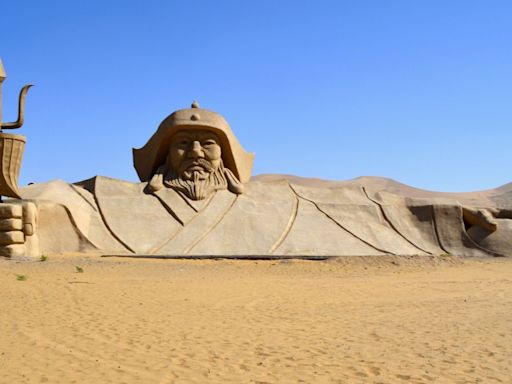Search results
1 day ago · Genghis Khan (born 1162, near Lake Baikal, Mongolia—died August 18, 1227) was a Mongolian warrior-ruler, one of the most famous conquerors of history, who consolidated tribes into a unified Mongolia and then extended his empire across Asia to the Adriatic Sea. Genghis Khan: His journey to power.
- Charles R. Bawden
Nov 9, 2009 · Mongol leader Genghis Khan (1162-1227) rose from humble beginnings to establish the largest land empire in history. After uniting the nomadic tribes of the Mongolian plateau, he conquered huge ...
Mar 17, 2020 · Collection. Through the 13th and 14th century CE the Mongols forged the largest connected empire the world had ever seen and such figures as Genghis Khan and Kublai Khan were feared as the devil himself, their mounted warriors conquering for their leaders territories from Europe to Korea. The Mongols were much more than a superb fighting ...
- Mark Cartwright
- Publishing Director
Nov 11, 2019 · The Mongol Empire (1206-1368) was founded by Genghis Khan (r. 1206-1227), first Great Khan or 'universal ruler' of the Mongol peoples. Genghis forged the empire by uniting nomadic tribes of the Asian steppe and creating a devastatingly effective army with fast, light, and highly coordinated cavalry. Eventually, the empire dominated Asia from ...
People also ask
Who was Genghis Khan?
Who founded the Mongol Empire?
Who ruled the Mongol Empire?
When did Genghis Khan become a king?
The Mongol Empire emerged from the unification of several nomadic tribes in the Mongol heartland under the leadership of Temüjin, known by the more famous title of Genghis Khan (c. 1162 – 1227), whom a council proclaimed as the ruler of all Mongols in 1206.

